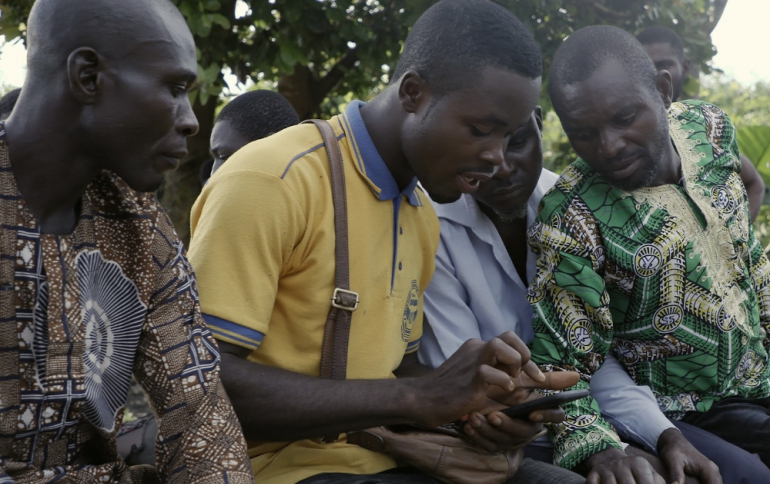
Facebook Needs to Get Remaining 3.5 Billion People Online
Facebook has invested in a number of internet infrastructure projects that aim to get more people throughout the world connected to the internet, but still needs to play a key role in connecting the remaining 3.5 billion to the World Wide Web.
Facebook published its latest annual Inclusive Internet Index, reporting that 4.1 billion individuals are now online across the globe, but also some 3.5 billion remain offline.
The Inclusive Internet Index benchmarks countries on the internet’s availability, affordability, relevance and the readiness of people to use it. Now in its fourth year, the Index covers 100 countries, representing 91% of the world’s population and 96% of global GDP.
Last year’s Index found that the rate of growth of internet access in low-income countries had slowed significantly. This trend continued in this year’s Index with internet access in low-income countries increasing by only 3.8%. In addition, on average, only 9.9% of households in low-income countries have access to the internet, compared with 88.5% in rich countries.
Although connectivity growth has slowed in the lowest-income countries, performance in the world’s middle-income countries has continually improved. Household connectivity in lower-middle income countries grew by nearly 12% in the past year and has grown by 65% since 2014.
Mobile connectivity has become more affordable and more accessible. This is a strong indicator that mobile operators have established viable business models to invest in bringing connectivity to traditionally underserved communities. Across low-income countries, where mobile connectivity is the predominant means to internet access, prepaid mobile plans now cost the equivalent of 11.5% of monthly GNI per capita, considerably more affordable than fixed options (140.1% of income), but still higher than the benchmark of 1GB of data for no more than 2% of monthly income. Mobile connectivity has also become more accessible: 4G coverage grew in 54 countries and now covers 31.2% of low-income and 64.7% of lower-middle income countries.
The report also shows that women still have less access to the internet than men. Across Index countries, men are 13% more likely than women to have access to the internet (down 3% from last year), and the gender gap is a remarkable 34.5% in low-income countries. The survey found that women are more likely to use, and are more dependent on, the internet for engaging in the digital economy.
Obviously, Facebook wants to reduce the internet gender gap because it will result not only in more users for its social network, but also in more engaged users.
The majority of survey respondents in Latin America, Asia and Sub-Saharan Africa (57%, 55% and 53%, respectively) credit the internet with expanding their financial independence. In Sub-Saharan Africa, 62% of survey respondents use a mobile phone to check account balances, transfer money or make payments.
"While the tech industry plays a significant role in closing the digital divide, innovation in government policy can have an equally significant impact. Many governments have started to think beyond legacy telecommunications regulation to allow for new business models, which in turn spur market entry by non-traditional players that bring investment and new solutions," Facebook said.
While the internet may mean access to financial services for people in developed nations, it means access to more personal data for Facebook. And in turn, this means more ad revenue, which reached almost $70 billion across all Facebook-owned platforms in 2019. Indeed, Facebook reported its average revenue per user (per quarter) at $7.26 towards the end of last year. So if it can manage to help 3.5 billion more people get online–and onto Facebook–its ad revenues will rise by around $25.4 billion per quarter.
Facebook also reported today that it has invested in rural mobile infrastructure in Peru, ultimately helping to provide 6,000 rural communities with an internet connection for the first time.
In 2016, Facebook also co-founded the Telecom Infrastructure Project (TIP) with various big telecom firms, such as Vodafone and Telefonica. TIP is focused on developing alternative communication technologies that will make internet connectivity cheaper and more accessible, thereby bringing more people online.
Facebook also launched Terragraph in 2016 as part of its connectivity ambitions. Terragraph is focused on developing high-bandwidth, low-cost wireless connectivity solutions for urban centres. Last year, its new wireless technology was trialled in Penang by YTL Communications, making Malaysia the first country to test it. And only a week ago, it was rolled out in Puerto Rico, placing Puerto Ricans only one step away from signing up for a Facebook account.
From Facebook's prespective, the more people there are on the internet, the more people there are on Facebook, although Facebook doesn't even need you to have a Facebook account to mine your data. And with more people on Facebook, the social network gets to tap into a much greater pool of personal data, making its algorithms much more predictive of how we'll respond to ads, and of how we're likely to behave.





















